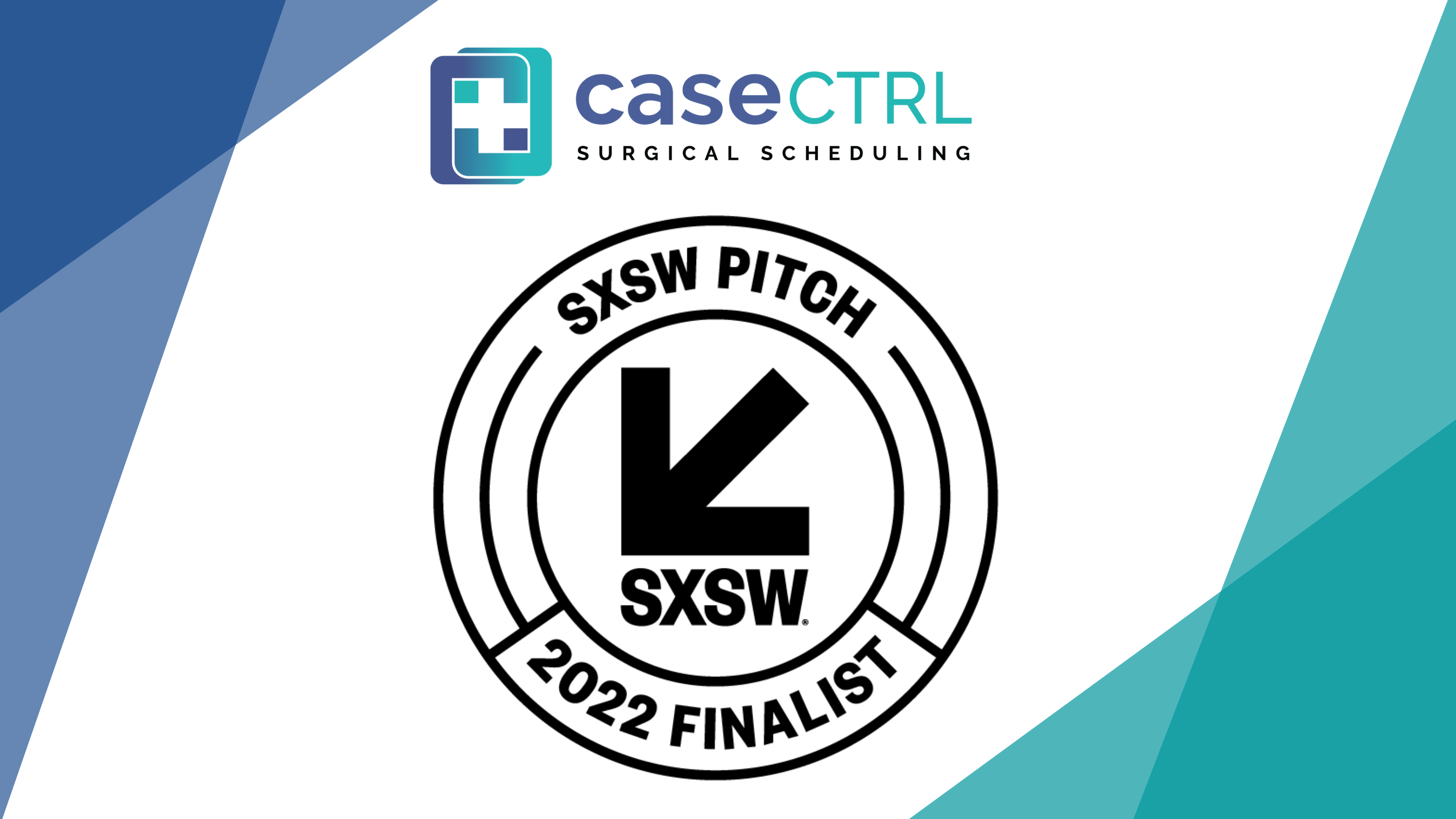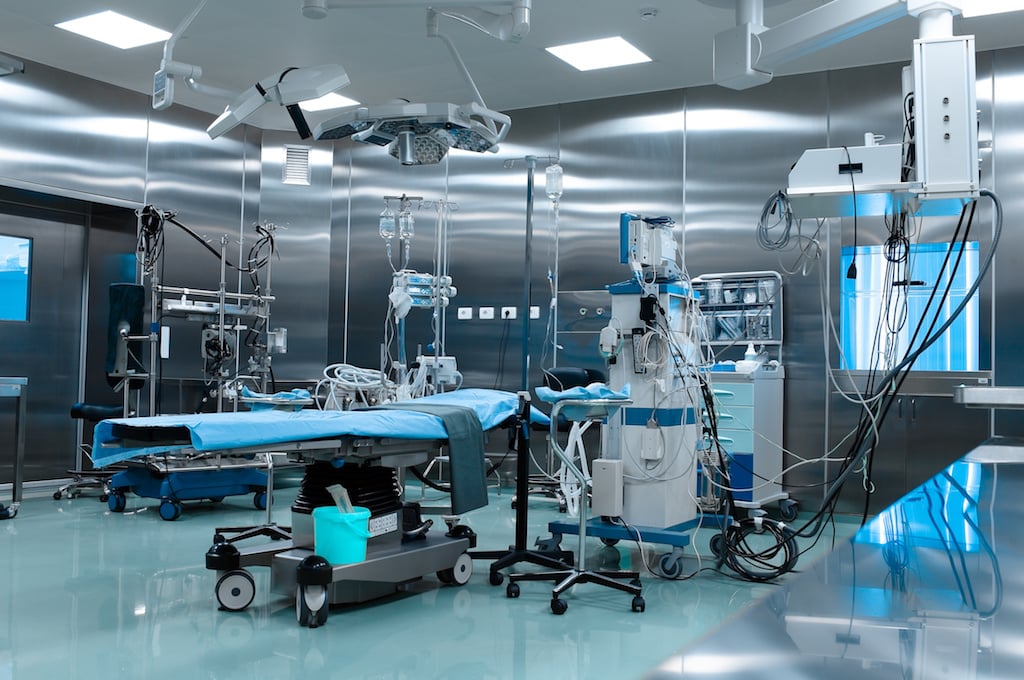Does your team find your Electronic Medical Record (EMR) surgery scheduling functions to be lacking? Are users searching multiple calendars, task lists, or encounters to get the information they need to schedule surgery? EMRs are really good at capturing clinical information and creating medical records, but EMRs were never designed to help surgery scheduling or manage a surgical episode that can span multiple weeks and involve multiple stakeholders.
A digital artist doesn't settle for the Microsoft Paint program that comes with their Windows operating system, so why should surgeons settle for the out-of-the-box limited inflexible surgery scheduling solutions that come with the EMR? Read on to learn the 4 ways your EMR falls short in surgery scheduling.
1. Cannot track patients as they progress in their surgical journey
Surgical encounters and clinical encounters are not the same! But for some reason, EMR's treat surgical episodes as a glorified clinic visit. Clinic visits are an event that occurs once and is done. Outside of insurance benefits verification, little preparation is required prior to the patient's arrival. EMR tools therefore are principally designed to maximize the clinic encounter itself. For surgery scheduling that requires significant planning and management in advance, the tools can come up short.
How to fix it:![]()
It’s time to switch from a paper-based system to an automated scheduling software that allows you to control the flow of information about every case from end to end. For instance, with CaseCTRL, our digital dashboards map out the entire lifecycle of the surgical episode. Staff can easily collaborate and track the progress of every patient. Level up your scheduling teams performance with many additional automations like lab reconciliation and vendor engagement that take the burden of these mundane tasks off your overworked scheduling team.
2. Tracking vital surgery scheduling documents is not feasible
Auditing vital documents like pre-authorizations and clearances for patients undergoing surgery is challenging. EMRs do not have the capacity to monitor what vital documents may be missing to successfully schedule a surgery. Constantly monitoring for faxes and ensuring information gets disseminated to the correct facility can be exhausting for staff. Multiplied by 100s of cases, chasing down documents can quickly become a source of burnout in surgery scheduling.
How to fix it:
![]()
Again, automation is the answer. By automating notifications and communications to all stakeholders, you can dramatically reduce the possibility of human error when it comes to scheduling surgery. Additionally, with an intelligent posting system using tools like the ones built into CaseCTRL, you can automatically engage referring practices, consultants, and patients to ensure the job gets done saving your team valuable time.
3. Cumbersome and inflexible case intake mechanisms cannot be standardized
The inability to accommodate various surgeon preferences or workflows leads to poor surgeon adoption of EMR case intake mechanisms and inevitably get replaced by disjointed, un-trackable, siloed approaches across surgeons in the practice. Surgeons hate being pigeon-holed into inflexible IT solutions and often end up resorting to paper-based processes and delegating more tedious case posting to a staff member. Without a digital mechanism, it is impossible for a practice to develop a KPI-driven digital surgery scheduling pipeline.
How to fix it:
![]()
A flexible surgery scheduling intake mechanism that is easily adopted by surgeons can establish that digital surgery pipeline. CaseCTRL predicts what a surgeon will need based on a surgeon’s historical scheduling data and the scheduling patterns of peers performing the same surgery, making it effortless for a surgeon to provide complete details for a specific surgery. To keep all postings as accurate and complete as possible, you need a platform that provides you with case posting templates that can be effortlessly edited and customized for each case and patient, ensuring a full and correct posting every time.
CaseCTRL also allows you to set up surgeon-based rules so that anyone can account for a surgeon's preferences or specific limitations at a given facility, ensuring surgeries are always scheduled in locations with the appropriate resources and equipment.
4. Siloed task-based EMR approaches to case scheduling do not foster collaboration
EMR task lists are very noisy. While role-based tasks may be feasible in your EMR, it is often difficult to attach these tasks to a surgical episode with multiple parties such as a biller, scheduler, and physician's assistant all collaborating in real-time. Often there is no way to easily see all tasks/checklists in a unified central place, and no inability to share and divide responsibilities which precludes economics of scale that could be realized with a more transparent shared surgery scheduling process.
How to fix it:
![]()
By switching to a web-based system, the scheduler can access electronic posting sheets remotely and completely securely. That way, even if the scheduler can’t come into work – the practice is still able to maintain the continuity of patient care and see exactly what steps are outstanding, and what has been completed for scheduling surgery. When tasks are audited, and catalogued according to surgical episodes, it is easier to foster collaboration among the surgical team even if someone is out.
Furthermore, when common manual redundant tasks are identified, surgical scheduling systems can be trained to handle them to alleviate the scheduler from the time consuming mundane tasks. This efficiency, in turn, will mean that scheduling is no longer a limiting factor, enabling the practice to potentially handle more surgeries. Through automation, software like CaseCTRL manages communication of all updates and notifications to reduce the work involved in the coordination by at least 50%.
Healthcare facilities and practices that use automated surgery scheduling software benefit from the ability to customize each case posting, collaborate and share information quickly and easily, and handle unexpected changes seamlessly with real-time communication updates. If you’d like to know more about how CaseCTRL can integrate with any EMR to save your practice, hospital or ASC time and money, schedule a demo today.







































